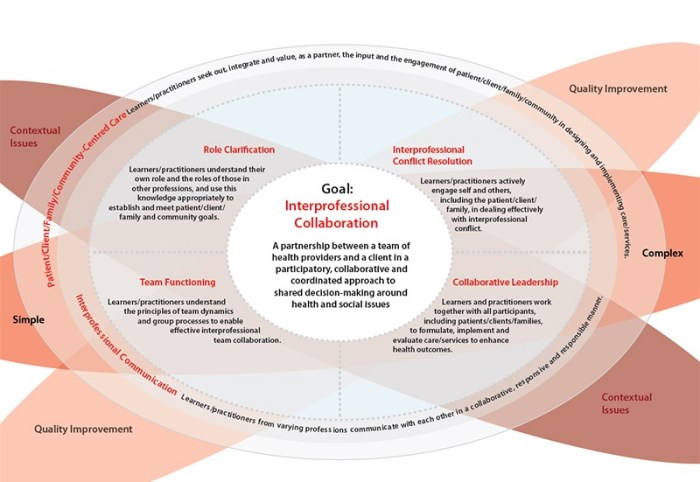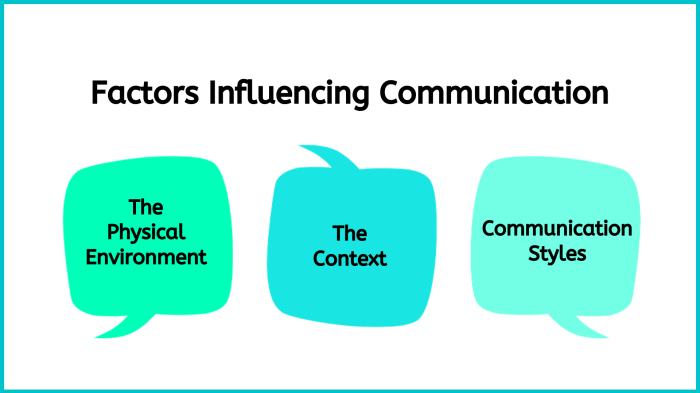Beverly would like to take action to improve interprofessional communication sets the stage for this enthralling narrative, offering readers a glimpse into a story that is rich in detail and brimming with originality from the outset. This narrative delves into the intricacies of interprofessional communication, exploring its challenges, strategies for improvement, and the profound impact it has on patient outcomes.
Prepare to embark on a journey of discovery, as we unravel the complexities of this multifaceted topic.
Interprofessional communication is a cornerstone of effective healthcare delivery, fostering collaboration, and ensuring the seamless exchange of information among healthcare professionals. However, challenges such as miscommunication, lack of empathy, and ineffective use of technology can hinder this vital process, leading to adverse patient outcomes.
Recognizing the significance of this issue, Beverly is determined to take decisive action to improve interprofessional communication within her organization, paving the way for enhanced patient care and organizational success.
Interprofessional Communication Challenges

Effective communication among healthcare professionals is crucial for patient safety and satisfaction. However, interprofessional communication often faces several obstacles that can hinder effective collaboration and coordination of care.
Communication Barriers, Beverly would like to take action to improve interprofessional communication
- Language and Terminology Differences:Healthcare professionals from different disciplines use specialized language and terminology, which can lead to misunderstandings and misinterpretations.
- Cultural and Background Differences:Cultural backgrounds and communication styles can influence how healthcare professionals communicate, potentially leading to conflicts or misinterpretations.
- Power Imbalances:Hierarchical structures and power dynamics within healthcare settings can create communication barriers, with some professionals feeling less comfortable speaking up or challenging others.
- Lack of Training:Many healthcare professionals receive limited training in interprofessional communication, which can result in poor communication skills and ineffective collaboration.
- Time Constraints:Busy healthcare environments often lead to time constraints, which can limit opportunities for effective communication and team discussions.
Impact of Miscommunication
Miscommunication in interprofessional communication can have significant consequences for patient care. It can lead to:
- Medical Errors:Incorrect or delayed communication can result in medication errors, surgical complications, and other patient safety issues.
- Poor Patient Outcomes:Ineffective communication can hinder the development of appropriate treatment plans, leading to suboptimal patient outcomes.
- Increased Healthcare Costs:Miscommunication can result in unnecessary tests, procedures, and hospital stays, driving up healthcare costs.
- Patient Dissatisfaction:Patients who feel uninformed or poorly communicated with are less likely to be satisfied with their healthcare experience.
- Staff Conflict:Miscommunication can create conflict and tension among healthcare professionals, negatively impacting teamwork and patient care.
FAQ Corner: Beverly Would Like To Take Action To Improve Interprofessional Communication
What are the primary challenges to effective interprofessional communication?
Interprofessional communication can be hindered by a range of challenges, including miscommunication due to differences in terminology or jargon, lack of empathy or understanding of other professions’ perspectives, and ineffective use of technology.
How can leadership promote interprofessional communication?
Leadership plays a pivotal role in fostering interprofessional communication by creating a culture of collaboration, facilitating team meetings and discussions, and implementing initiatives to improve communication.
What are the benefits of improved interprofessional communication?
Enhanced interprofessional communication leads to improved patient safety, reduced medical errors, more effective treatment plans, and increased patient satisfaction.
How can interprofessional communication be measured and evaluated?
The effectiveness of interprofessional communication can be assessed through methods such as surveys, focus groups, and observation, with feedback used to drive ongoing improvement.

